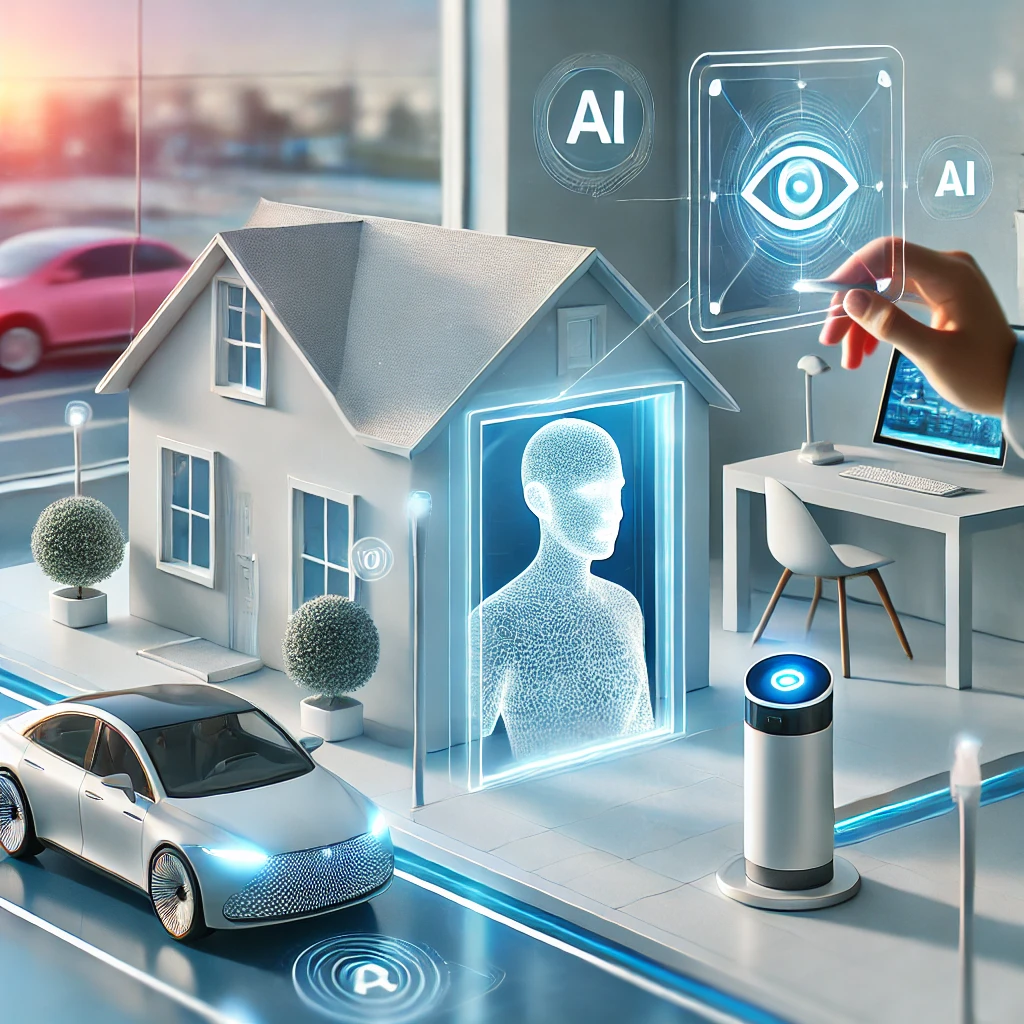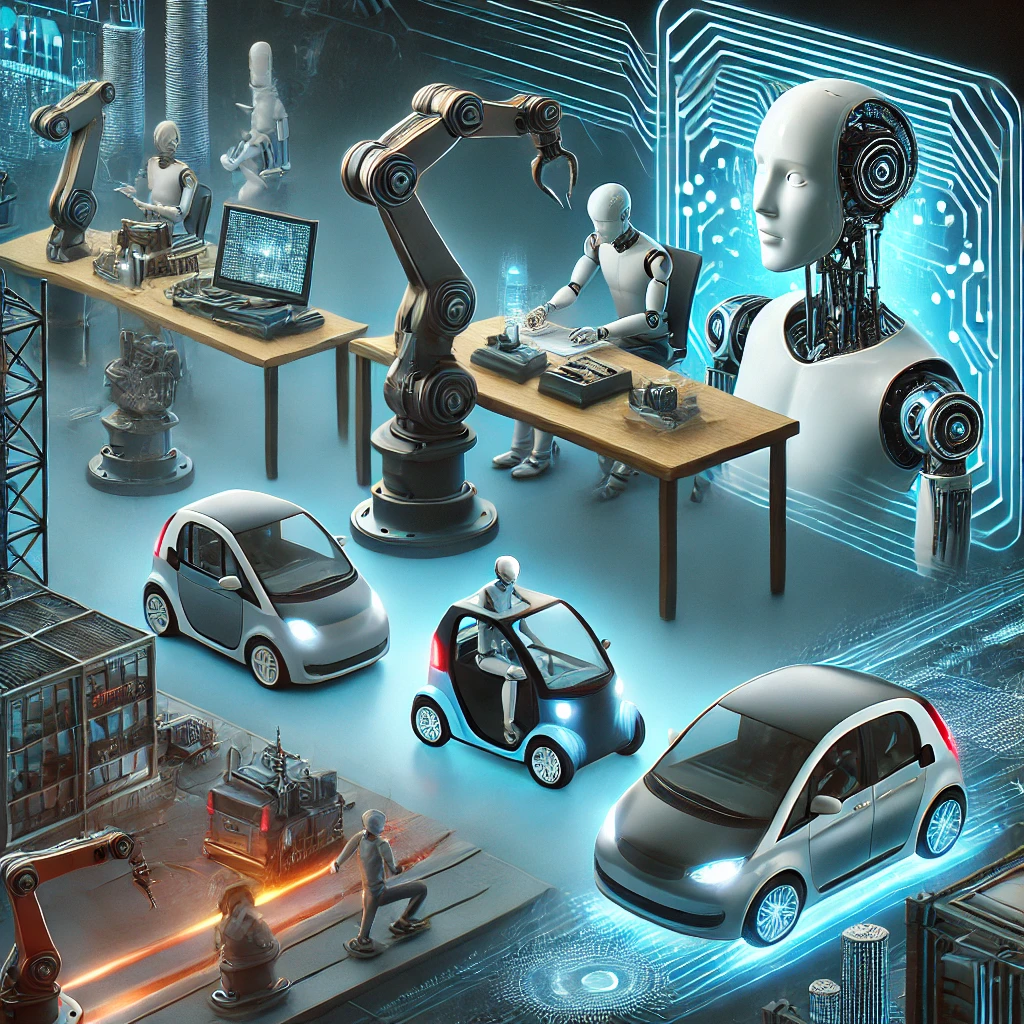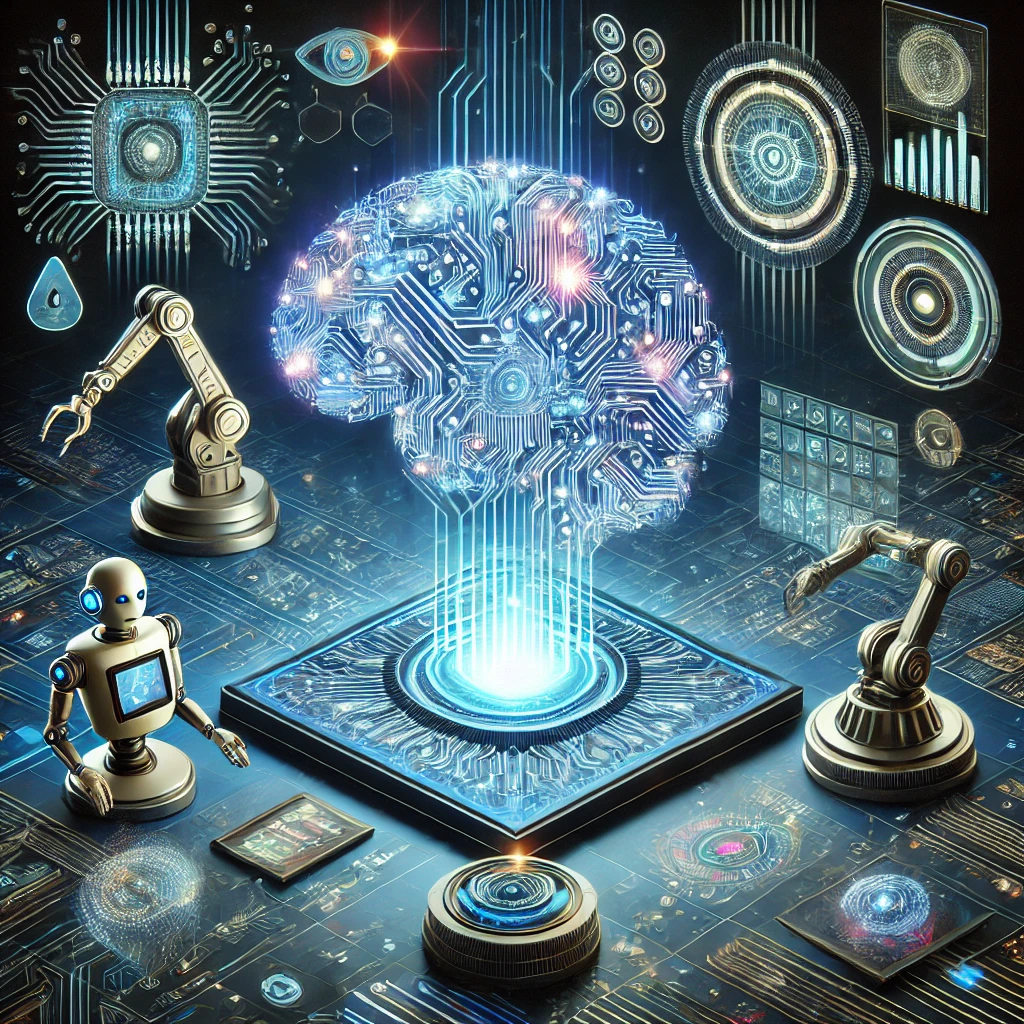Introduction
Artificial Intelligence (AI) is no longer a futuristic concept; it is deeply integrated into our daily lives. Whether you realize it or not, AI is influencing the way we shop, communicate, work, and even how we entertain ourselves. From the moment we wake up to the time we go to sleep, AI is silently working behind the scenes, making our lives easier and more efficient.
But what exactly is AI? How does it function? And most importantly, how is it being used in our daily lives without us even noticing? Let’s dive deep into the world of artificial intelligence and uncover its hidden presence in our everyday activities.
What is Artificial Intelligence (AI)?
Artificial Intelligence (AI) refers to the simulation of human intelligence in machines that are programmed to think, learn, and adapt. AI systems use algorithms and data to perform tasks that traditionally required human intelligence, such as problem-solving, decision-making, speech recognition, and visual perception.
AI is categorized into two main types:
- Narrow AI (Weak AI): Designed for specific tasks like facial recognition, voice assistants, or recommendation algorithms.
- General AI (Strong AI): Hypothetical AI that can perform any intellectual task a human can do. This level of AI does not yet exist but is the ultimate goal of AI research.
Now, let’s explore how AI is seamlessly integrated into our daily lives without us even realizing it.
How AI is Used in Our Daily Life Without Us Knowing
1. Smartphones and AI
- Your smartphone is powered by AI in multiple ways. Features like facial recognition, voice assistants (Siri, Google Assistant, Alexa), and predictive text all use AI algorithms.
- AI-powered cameras enhance image quality, detect scenes, and optimize lighting automatically.
- Apps like Google Maps use AI to provide real-time traffic updates and route recommendations.
2. AI in Social Media
- Social media platforms use AI to personalize your news feed, suggesting posts, friends, and advertisements based on your interests.
- AI-powered filters on Instagram and Snapchat adjust lighting and improve facial features.
- Facebook and Twitter use AI for content moderation, detecting fake news, and blocking harmful content.
3. AI in Online Shopping
- E-commerce platforms like Amazon and Flipkart use AI for personalized recommendations.
- AI chatbots assist in customer support, handling queries 24/7.
- AI-driven pricing algorithms adjust prices based on demand, competition, and buying behavior.
4. AI in Banking and Finance
- AI is used to detect fraudulent transactions and prevent cyber threats.
- Robo-advisors help in financial planning by analyzing spending habits and suggesting investments.
- AI chatbots in banking apps handle account queries, loan applications, and credit card approvals.
5. AI in Healthcare
- AI-powered diagnostic tools help doctors detect diseases like cancer and diabetes in early stages.
- Wearable devices like smartwatches monitor heart rate, oxygen levels, and sleep patterns using AI.
- AI chatbots provide medical advice and symptom analysis.
6. AI in Entertainment and Streaming Services
- Netflix, YouTube, and Spotify use AI to recommend movies, videos, and music based on viewing history.
- AI enhances gaming experiences with intelligent NPCs (Non-Playable Characters) and adaptive difficulty levels.
- AI-generated content, including deepfake technology, is reshaping the entertainment industry.
7. AI in Home Automation (Smart Homes)
- Smart home devices like Alexa, Google Nest, and Siri control lighting, temperature, and security.
- AI-powered security cameras detect unusual activity and send alerts.
- AI learns user preferences over time, optimizing energy consumption and increasing convenience.
8. AI in Transportation
- AI-driven navigation apps provide real-time traffic updates.
- Self-driving cars use AI to detect obstacles, pedestrians, and traffic signals.
- AI assists ride-sharing apps like Uber in route optimization and price estimation.
9. AI in Email and Communication
- AI filters spam emails in Gmail and other email services.
- Smart replies and predictive text improve email efficiency.
- AI-powered translation tools break language barriers in communication.
10. AI in Online Education and Learning
- AI-powered platforms like Coursera, Udemy, and Duolingo personalize learning paths.
- Virtual tutors assist students with doubts and explanations.
- AI analyzes student progress and suggests areas of improvement.
The Future of AI in Daily Life
The future of AI promises even more seamless integration into our lives. AI-powered personal assistants may handle everyday tasks like scheduling meetings, shopping, and making medical appointments. AI will also revolutionize industries like agriculture, logistics, and customer service.
However, with AI’s growing presence, ethical concerns regarding privacy, job displacement, and data security must be addressed.
Conclusion
AI is no longer confined to science fiction; it is an integral part of our daily existence. From the moment we wake up to when we go to bed, AI is silently working behind the scenes, making our lives more efficient, convenient, and connected.
Whether it’s the smartphone in your pocket, the recommendations on your favorite streaming platform, or the chatbot assisting you in online shopping, AI is everywhere. As AI continues to evolve, its role in shaping our future will only grow stronger.
Understanding AI and its impact is essential because, whether we notice it or not, AI is already an inseparable part of our lives.



